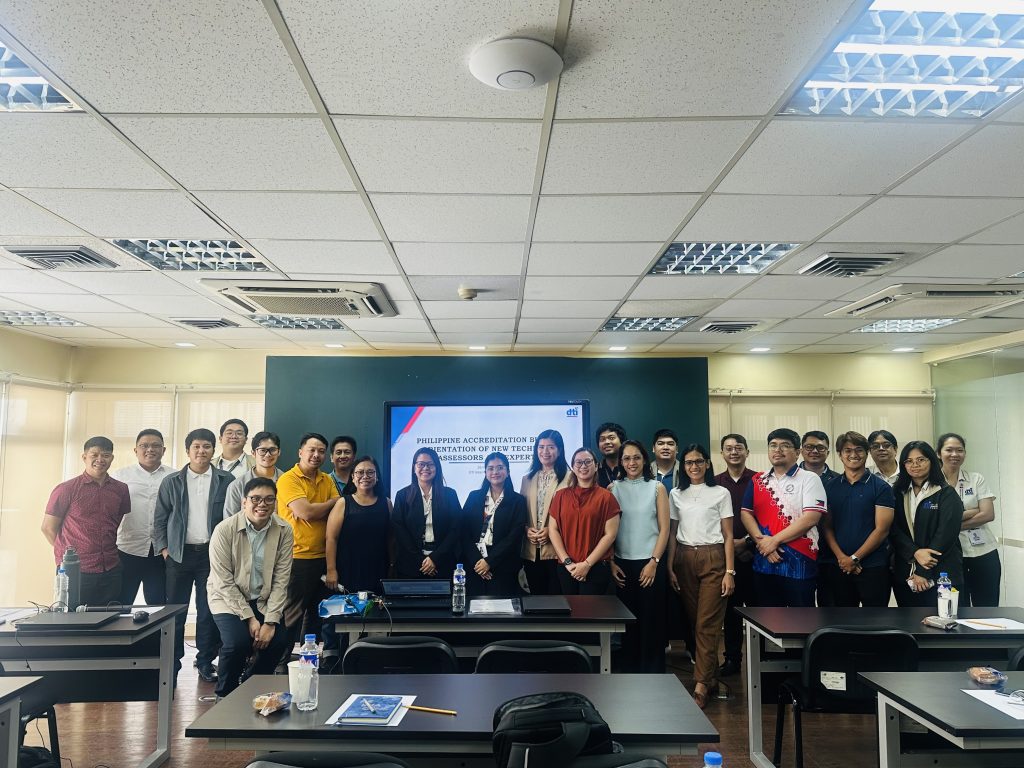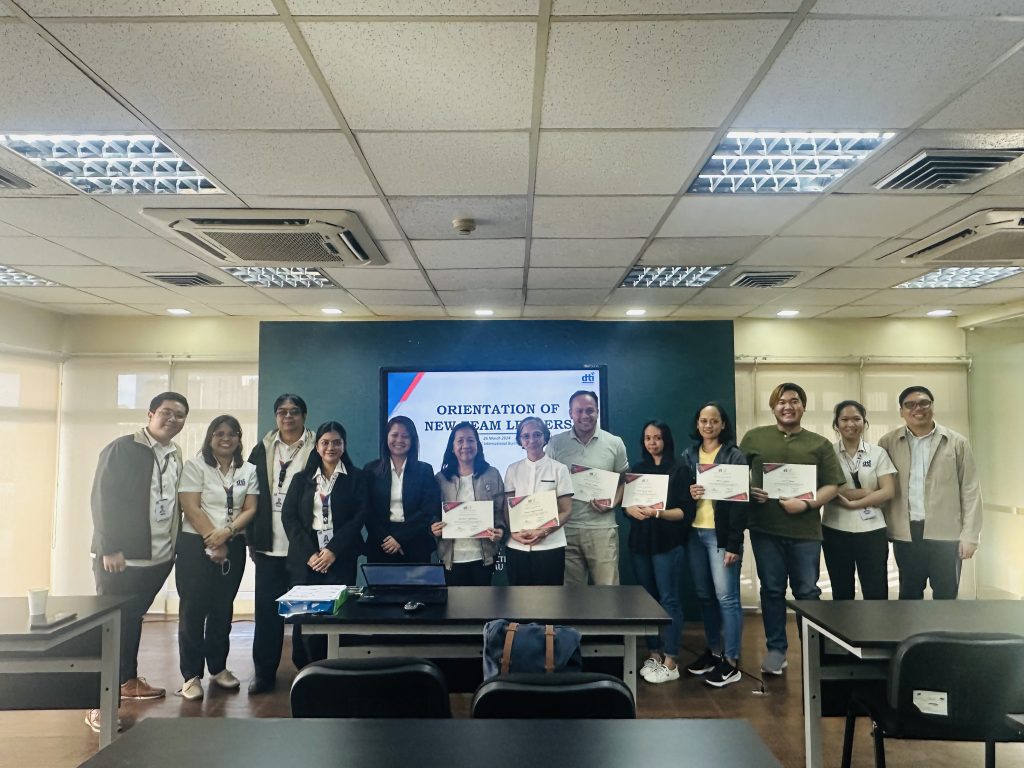The DTI-Philippine Accreditation Bureau (PAB) provided a comprehensive orientation for newly qualified Technical Assessors and Experts (TA/TE), and Team Leaders (TL) under the Bureau’s Laboratory Accreditation Division, enhancing their proficiency and preparedness to uphold accreditation standards effectively.
The event was held on March 26, 2024, at the DTI International Building, 375 Sen. Gil Puyat Ave., Makati City, and participated by seventeen (17) TA/TEs who attended the morning session, and six (6) TLs in the afternoon orientation.
The participants were introduced to the fundamental principles of conducting laboratory assessment, emphasizing the adherence to international standards and applicable PAB mandatory documents.

Ms. Michelle Esteban, Chief of the Laboratory Accreditation Division (LAD) led the program by introducing the services offered by PAB, and PAB’s qualifications and requirements in selecting and evaluating new TA/TE and TL. She also presented the code of ethical standards, emphasizing their responsibilities and obligations in conducting assessment with fairness, accuracy, and integrity.
Mr. Marlon Macadamia, Assistant Chief of LAD explained the composition of an assessment team, highlighting the important roles and responsibilities of each member of the team. He also cited different assessment techniques that might be suitable depending on the characteristics of the organization, process, or system being assessed. He added that members of the assessment team should demonstrate objectivity, impartiality in their judgments, and avoiding biases or conflicts of interest that could compromise the integrity of the assessment. By noting these and other factors, he concluded that the assessment team can be well-equipped to conduct a thorough and effective laboratory assessment.
Mr. Isaiah Dale Lim, also one of PAB-LAD’s Accreditation Officers, discussed about writing and grading non-conformities. He highlighted the importance of clarity and conciseness when documenting non-conformities, including the usage of basic terms and avoiding ambiguity to accurately convey the nature and severity of the non-conformity. He also tackled the significance of grading non-conformities based on their impact on the laboratory’s quality management system and compliance with the requirements. This grading system helps manage time effectively and address issues that pose the greatest risk to quality and compliance.
During the afternoon session, Accreditation Officer Roderick Dela Cruz delved into the role of a Team Leader during an assessment. He provided invaluable insights and tips to equip the new team leaders with the necessary skills for effective team management. He explained the importance of understanding team dynamics, recognizing individual strengths, and delegating tasks efficiently to achieve the best results.

An open forum ensued right after the presentation where TLs were given different assessment scenarios to evaluate their knowledge and understanding in relation to the conduct of assessments. One of the debated subjects revolved around the scenario where a team member served as a consultant or trainer for the laboratory they were evaluating.
The interactive session facilitated fruitful discussions among the participants, enabling them to exchange ideas, share challenges, and gather insights from the resource speakers.
As the Philippine Accreditation Bureau continues its efforts to elevate the quality of its accreditation services, the orientation of Technical Assessors and Experts (TA/TE) along with Team Leaders (TL) stands as a crucial element in cultivating a proficient and dependable group of assessors and experts.
Release Date: 19 April 2024.
| Related Links | ||||
 |  |  |  |  |
| Other Resources | ||||
 |  | INFORMATION FOR REGULATORS | ||


